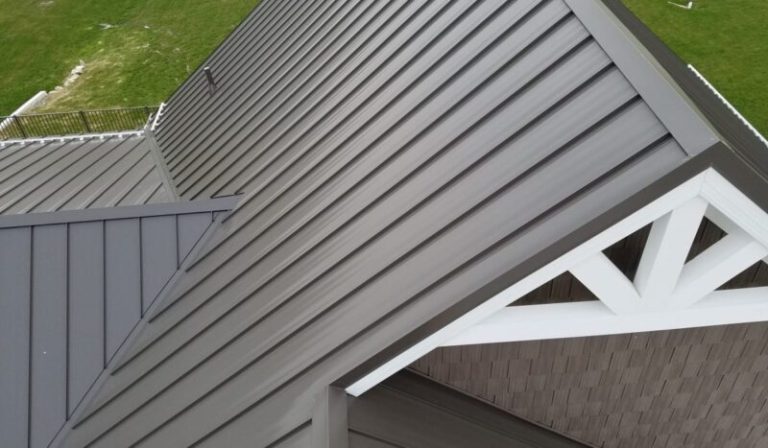Block Salt for Water Softeners (All You Need to Know)
Block salt for water softener is increasingly becoming the go-to option for homeowners and businesses seeking to combat hard water issues. As a trusted source for water softening solutions, we dive deep into the wonders of block salt, explaining why it might be your ideal choice.
How does block salt work in a water softener?
Block salt operates through ion exchange. When hard water passes through your softener system filled with block salt, calcium and magnesium ions—responsible for water hardness—are swapped with sodium ions, resulting in soft water. This process transforms your problematic hard water into a friendlier version for your appliances and skin.
What is the difference between block salt and salt pellets for water softeners?
Block salt is typically more compact and easier to handle than pellet salt. It dissolves uniformly, often resulting in less residue and more efficient regeneration cycles. Pellet salt, while effective, might sometimes cause bridging—a situation where salt sticks together, forming an arch inside the brine tank.
Are there any alternatives to block salt for water softening?
Yes, there are. Beyond block and pellet salt, there are also potassium chloride and solar salt options. However, block salt is often praised for its consistency and effectiveness.
How often do I need to add block salt to my water softener?
The frequency varies based on your water usage and hardness. Typically, a monthly check is advisable. If the block salt level is low, replenishing is necessary to maintain soft water.
Can I use block salt in all types of water softener systems?
Most modern softeners support block salt. However, always consult your manufacturer’s recommendations.
What are the benefits of using block salt in a water softener?
Block Salt Benefits:
- Efficiency: Dissolves uniformly for effective softening.
- Maintenance: Less residue means fewer clean-ups.
- Cost-Effective: Might require less frequent refilling than other salt forms.
How do I properly store block salt for my water softener?
Store in a cool, dry place away from direct sunlight. Moisture can cause the blocks to stick together.
Is block salt more cost-effective than other forms of water softener salt?
In many cases, yes. Due to its efficient dissolution and less wastage, block salt can offer savings in the long run.
Are there any concerns or drawbacks associated with using block salt for water softening?
While block salt is a fantastic choice for many, those on low-sodium diets should consult health professionals regarding sodium intake from softened water.
How do I know if my water softener is running low on block salt?
Regularly check the salt level in your brine tank. If it’s below one-third full, it’s time for a refill.
What is the impact of block salt on the environment compared to other water softening methods?
Eco-friendly Water Softening:
Block salt systems are efficient, meaning less water wastage during regeneration. By choosing high-quality block salt, you’re opting for an environmentally-friendly solution.
Water Softener Brine Tank: The Heart of Softening
The brine tank plays a pivotal role in the softening process. This is where block salt is stored. As water enters this tank, it interacts with the salt to create a brine solution, which is crucial for the regeneration process of the resin beads responsible for the ion exchange.
Block Salt vs. Other Water Softener Salt Types
While block salt stands out for its efficiency, it’s worth noting other salt types available in the market:
- Salt Pellets: Made by compressing salt into pellet form. Suitable for most softeners but can sometimes cause salt bridging.
- Solar Salt: Extracted from sea water through evaporation. It’s a natural choice but might not be as efficient as block salt.
- Potassium Chloride: An alternative for those concerned about sodium intake. It’s pricier and might not be as readily available.
Hard Water Issues & The Solution Block Salt Offers
Hard water, with its high mineral content, can cause numerous issues:
- Limescale build-up in appliances, reducing their lifespan.
- Soap not lathering effectively, leading to increased detergent usage.
- Skin issues like dryness and irritation.
Block salt, due to its effective and consistent dissolution, can tackle these issues head-on, offering an efficient solution for households and businesses alike.
Residential vs. Commercial Water Softening: Is Block Salt Suitable for Both?
Block salt is versatile. While it’s a staple in many residential settings due to its user-friendliness, it’s also gaining traction in commercial spaces. Given its uniform dissolution and minimal maintenance, it’s an attractive choice for businesses that require large quantities of softened water daily.
Softened Water Advantages: Beyond Just Being Kind to Appliances
While it’s known that softened water prolongs appliance life, there are other noteworthy benefits:
- Economical: Less detergent and soap usage.
- Healthier Skin & Hair: Soft water is gentle, resulting in softer skin and shinier hair.
- Clothing Care: Clothes retain color and texture for longer.
Switching Salts: Transitioning from Pellets or Crystals to Block Salt
If you’re considering making the switch to block salt from another type, the process is relatively straightforward:
- Empty your brine tank of the current salt.
- Clean the tank to remove any residue.
- Add the block salt.
- Check with your manufacturer if any settings need to be adjusted.
Salt Consumption in Softeners: Efficiency of Block Salt
One of the standout features of block salt is its efficient consumption rate. Since it dissolves uniformly, the water softener uses only the required amount for each regeneration cycle, potentially leading to longer intervals between salt replacements.
The Verdict on Eco-friendly Water Softening
The environment is a shared responsibility. With water softening, the choice of salt can make a difference. Block salt, due to its efficient dissolution and reduced waste, positions itself as an eco-friendlier option. By choosing block salt, homeowners and businesses are taking a step towards sustainability.
FAQs about Block Salt for Water Softeners
Can block salt help with iron removal in addition to water softening?
While block salt primarily targets hardness ions, certain systems can also remove small amounts of iron.
What is the ideal size or weight of a block salt for my water softener?
Sizes vary; however, popular household blocks are around 4kg.
How does the block salt dissolve and regenerate in a water softener system?
Block salt gradually dissolves in the brine tank, creating a saturated solution used during the regeneration cycle.
Can I use block salt in commercial or industrial-scale water softeners?
Absolutely. Ensure the system supports block salt usage.
Also Read: Safe Workspaces, Productive Teams: The Impact of Health and Safety Training
Final Thoughts
Water softening is more than just a luxury; for many, it’s a necessity. In the diverse world of softening salts, block salt shines bright, offering a blend of efficiency, economy, and environmental friendliness. Whether you’re a homeowner or run a business, block salt for water softener might just be the game-changer you’ve been seeking.




